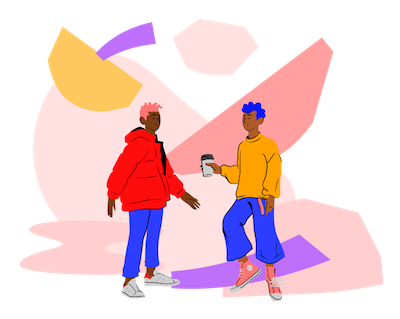|  | | | Bonjour Mon Ami! Prepare to laugh with our new French joke, expand your vocabulary, and delve into the charm of everyday French terms like 'aujourd'hui', 'amour', 'anticipation', 'feux d'artifice' and 'des cierges magiques'. |
| |
| |
|
|
aujourd'hui The French equivalent for the English word 'today' is 'aujourd'hui'. It is used in the same context to refer to the current day. For example, 'Je vais à la plage aujourd'hui' translates to 'I am going to the beach today'. This word is typically used in everyday conversation and written language. Here's how to use it: Je reste à la maison aujourd'hui. Aujourd'hui est un bon jour. Aujourd'hui, nous allons au cinéma.
| |
|
amour In French, the English word 'love' is translated as 'amour'. It can be used in similar contexts as in English to express romantic affection or deep friendliness towards someone or something. For example, 'Je t'aime' in French is 'I love you' in English. It's vital in phrases that express strong emotional statements. Here's how to use it: | |
|
anticipation In French, 'anticipation' is used similarly to English, indicating the act of expecting or looking ahead to something future. This could relate to any kind of event or occurrence. It can be used in various grammatical contexts, including as the subject of a sentence, the object of a verb, or as a complement. Here's how to use it: Elle vit dans l'anticipation de son mariage. Son manque d'anticipation a ruiné le projet. L'anticipation des défis rend la vie plus facile.
| |
|
feux d'artifice The French term 'feux d'artifice' is used to refer to fireworks, particularly those used during celebrations like New Year's Eve or Bastille Day in France. It is usually used in the plural form given the collective nature of fireworks. It's important to remember the phrase in its entirety, as 'feux' on its own refers to 'fires' and 'artifice' can mean 'trickery', but together they make up the term for fireworks. Here's how to use it: Les feux d'artifice pendant la fête nationale sont magnifiques. J'ai peur des feux d'artifice. Je me souviens des feux d'artifice de notre premier rendez-vous.
| |
|
des cierges magiques In French, 'des cierges magiques' is the term for 'sparklers.' It is often used in festive ceremonies such as birthdays or national holidays, such as the 14th of July in France. It is a countable noun so remember to make it agreement with the number. Here's how to use it: Mon fils adore des cierges magiques. Dans certains endroits, l'usage des cierges magiques est interdit. Elle a dessiné dans l'air avec des cierges magiques.
| |
|
😆😆😆 Monsieur et Madame D'ISSOIR ont un fils. Comment s'appelle-t-il? Alain. | |
|
| You received this email because you signed up at LangBites.co. Click here to unsubscribe. |
| |
|
|
|

